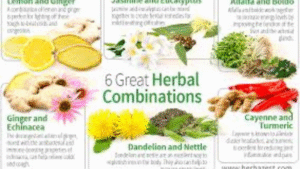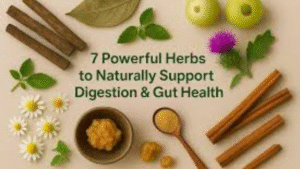The “Natural” Assumption: Safe or Risky?
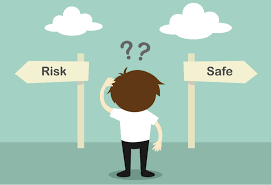
When people bring up herbs safe with medications, the reaction is almost predictable: a quick nod, maybe a shrug, as if to say, “Well, it’s natural—so of course it’s safe.”
But here’s the thing—“natural” doesn’t always mean harmless. You know what? Some of the strongest medicines in hospitals today started as plant compounds. Morphine (from poppies), aspirin (from willow bark), and even chemotherapy drugs have botanical roots. So it makes sense that the herbs in your tea or capsules can be powerful too.
That cozy chamomile tea before bed? It feels harmless, yet it can intensify sedatives. Ginseng, the go-to for energy, can nudge blood pressure up. Licorice root—the same nostalgic flavor in old-fashioned candy—can interact with heart or kidney drugs.
So when you’re mixing herbs and medication without stopping to check, it’s not just a gamble. Sometimes nothing happens. Sometimes the side effects creep in slowly. And sometimes the combo sparks serious herb drug interactions—the kind that lead to unexpected trips to the doctor.
Why This Topic Deserves More Attention Than It Gets

Honestly, asking “Are herbs safe with prescriptions?” is one of the smartest things you can do. A lot of folks never even ask. They toss supplements into their routine the way they’d toss spinach into a smoothie—assuming it can’t possibly do harm.
Let me explain—inside your body, herbs and prescriptions don’t live in separate apartments. They share the same processing systems: your liver, kidneys, and enzymes. It’s like a small-town road at rush hour. Prescriptions are already lined up, moving steadily. Then you add an herb. Sometimes it merges smoothly. Somet cuts someone off. Sometimes it causes a pile-up.
Take St. John’s Wort. It’s common for mood support, but it can make antidepressants weaker and reduce the effectiveness of birth control pills. Or Ginkgo Biloba—people swear by it for memory. But paired with blood thinners, it can turn a tiny scrape into a concerning bleed.
That’s why herbal supplements safety isn’t about paranoia—it’s about practicality.
Mixing Herbs and Medication: The Tug-of-War in Your Body

Here’s the thing: when you’re mixing herbs and medication, they don’t wait politely in line. Both compete for the same “metabolic machinery.”
Imagine your liver as an airport. Every drug, every herb—they’re all planes trying to land on the same runway. Some land smoothly. Others circle endlessly. And sometimes, two planes try to land at once. That’s when things go wrong.
Some herbs speed up drug clearance, making prescriptions weaker. Others slow it down, causing meds to build up to unsafe levels.
Examples?
-
Garlic, ginseng, and ginkgo can all make blood thinner drugs riskier.
-
Bitter melon and fenugreek may drop blood sugar so low it feels like you skipped meals all day.
-
Green tea—yes, the Instagram-worthy drink—can reduce the strength of blood pressure meds.
So when people ask, “Can herbs interfere with medicine?”, the answer is yes. And not just sometimes. Often.
A Quick Story: When “Healthy” Backfired
Let’s make this real.
A patient—let’s call her Maria—was managing high blood pressure with prescribed medication. She also loved green tea. In fact, she drank several cups daily, especially during flu season when everyone around her was coughing. Slowly, her blood pressure numbers started creeping back up. Her doctor increased the dosage, but the readings stayed high.
Turns out, it wasn’t the prescription failing—it was the green tea interfering with the medication. Once Maria reduced her tea intake and checked her meds with a medication interaction checker, her numbers returned to normal.
The lesson? Even something that feels wholesome can quietly derail your prescriptions.
How to Actually Check Herbal Supplements Safety

So, how do you make sure your favorite herb is safe with medications? Here’s a straightforward roadmap.
-
Step one: Read the label. Don’t skim. That “relaxation” tea might hide five herbs beyond the bold one on the box.
-
Step two: Use a medication interaction checker. Quick and often surprising. (Try MedlinePlus or Mayo Clinic’s resources.)
-
Step three: Look at credible science. NIH and PubMed are excellent sources, though dense. NCCIH often breaks it down into plain language.
-
Step four: Ask your pharmacist. Honestly, they’re the unsung heroes here. They can spot herb drug interactions in seconds.
Put these steps together, and you’ve built yourself a safety net.
Medication Interaction Checkers: Good, Not Perfect

Think of a medication interaction checker as GPS. It shows you potential trouble spots, but it won’t catch every detail.
Type in your prescriptions, add the herb or supplement, and see if any alerts come up. Sometimes it’s a green light—no conflicts. Sometimes it’s a flashing red: “Don’t mix this with your blood thinner.”
But remember: these tools aren’t flawless. Some herbs aren’t listed. Some updates lag. That’s why they’re a guide, not gospel. Always confirm with a pharmacist or doctor.
Common Herb-Drug Interactions You Shouldn’t Ignore
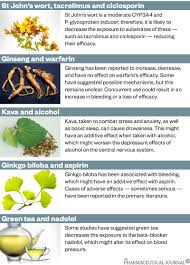
Here are some of the herb drug interactions doctors and pharmacists warn about again and again:
-
St. John’s Wort + Antidepressants → Can trigger serotonin overload (confusion, sweating, even seizures).
-
Ginkgo Biloba + Blood Thinners → Raises bleeding risk, even from a small cut.
-
Green Tea + Blood Pressure Medications → Weakens their effect, leaving pressure uncontrolled.
-
Echinacea + Immunosuppressants → Cancels out the drug’s job, a big risk for transplant patients.
Notice the pattern? Herbs aren’t background extras. They’re active players in your body’s chemistry.
Seasonal Tie-In: Flu Season, Herbal Teas, and Prescriptions
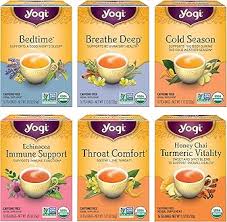
Winter rolls around, people stock up on echinacea, elderberry, or ginger teas. It’s a comforting ritual, like chicken soup. But here’s the caution: when combined with prescriptions—especially for immune conditions or chronic illnesses—those same herbs can cause trouble.
Echinacea, for example, may reduce the effectiveness of immunosuppressants. Elderberry can overstimulate the immune system in some people. And ginger, though great for nausea, can thin the blood and complicate prescriptions like warfarin.
So, seasonal habits aren’t bad—but they still need a check-in for herbal supplements safety.
Are Herbs Safe with Prescriptions? The Honest “It Depends”
So let’s circle back: are herbs safe with prescriptions? Honestly, it depends. Sometimes yes. Sometimes no.
The frustrating part is that you may not notice the impact right away. Some interactions are loud (like dizziness or bleeding). Others sneak in, weakening your prescriptions until you realize your health has shifted. That’s why herbal supplements safety should always be part of the conversation.
The point isn’t to scare you off herbs—it’s to treat them with the same respect you give prescriptions.
Questions Worth Asking Your Doctor or Pharmacist

Here’s what to ask when you’re worried about mixing herbs and medication:
-
“Can herbs interfere with medicine I’m already taking?”
-
“Which herbs should I avoid with my prescriptions?”
-
“Are there safer alternatives that won’t cause risky herb drug interactions?”
Bring your full list—pills, teas, gummies, supplements. They’ll appreciate it.
Everyday Habits That Make a Big Difference
Here are some simple habits that make herbal supplements safety second nature:
-
Keep a running list of meds and herbs.
-
Add herbs one at a time. That way, if something feels off, you’ll know what did it.
-
Always run new herbs through a medication interaction checker first.
-
Schedule a yearly “meds and supplements” check with your pharmacist.
These aren’t big changes, but they make your routine safer.
FAQ: Quick Answers to Common Questions:
Q: Can I drink herbal tea every day if I’m on prescriptions?
A: Depends on the tea and the medication. Chamomile, green tea, licorice—each interacts differently. Check before making it a habit.
Q: Which herbs are most likely to interfere with medications?
A: St. John’s Wort, ginkgo, garlic, green tea, echinacea, and ginseng top the list.
Q: Is it safe to take multiple herbs with one medication?
A: Not without checking. Each herb can bring its own risks, and stacking them increases the chances of conflict.
Q: Are herbal supplements regulated like prescriptions?
A: Not in the same way. Supplements aren’t tested as strictly, which makes your role in checking safety even more important.
Q: What’s the easiest step to stay safe?
A: Keep a list, use a medication interaction checker, and ask your pharmacist. Three small steps = big peace of mind.
Wrapping It Up: Herbs and Meds Can Work Together—If You Check
You know what? Herbs can absolutely be part of a healthy life. Prescriptions save lives too. The trouble only comes when people assume the two will never collide.
So, if you’ve ever wondered, “Are herbs safe with prescriptions?” or “Can herbs interfere with medicine I rely on?”, don’t leave it up to chance. Research, check, and ask.
Because when you take the time to confirm herbal supplements safety, you don’t just avoid risks—you get the best of both worlds: the gentle support of herbs and the precision of modern medicine.




